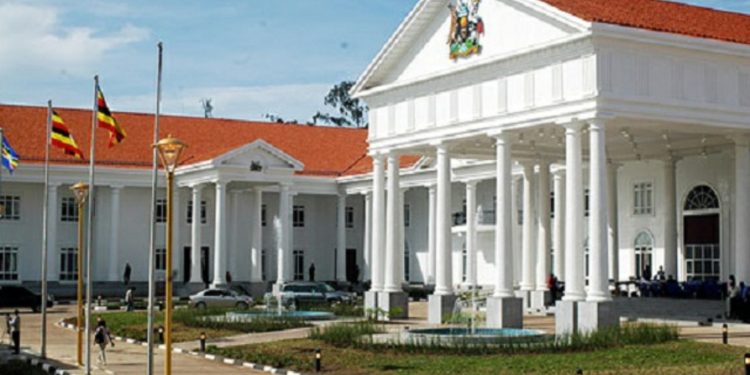On Friday, October 6, 2023, President Yoweri Museveni presided over the graduation of a total of 16, 797 learners under the Presidential Initiative for Skilling the Girl and Boy Child, an initiative run by State House, at Kololo Independence grounds. The learners graduated after successfully completing their six-month training. The youths from the nine skilling centres in Kampala were awarded certificates in different disciplines from the Directorate of Industrial Training (DIT); in carpentry, shoemaking, embroidery, weaving, construction, and plumbing.
Other disciplines included knitting, electric installation, electronics, bakery and confectionery, hairdressing and make-up, metal fabrication and motor mechanics.
So far, 35, 728 students have benefited from the program that seeks to empower ghetto and underprivileged urban youths with skills for self-reliance.
Graduands who have acquired employable skills have given testimonies on how the skilling centres have transformed them into useful and productive young citizens. Those that have had a chance to tour the hubs can testify how fertile they are in terms of molding ready products for the market-both the learners and what they craft with their own hands.
The program was launched in 2017 by the President with the main objective of equipping young girls with hands-on skills to enable them to create jobs and generate wealth. It was also intended to actualise the Buy Uganda Build Uganda (BUBU) initiative. Import substitution is a must if we are to transform and industrialise while minimising dependence on exports.
Becoming a producer of any kind takes skill. One needs “know-how”, using your mind, hands, legs, eyes, ears and other senses to craft something out of materials and available tools. If every Ugandan with a skill put it to use, we would have so many producers that we would not need to import anything, except the very few things, which we cannot (yet) produce ourselves from resources that do not naturally occur here.
Therefore, the Presidential Skilling Hub initiative is of great significance in transforming Uganda by practically skilling young people and equipping them to become producers and job creators. The delight and optimism with which graduates leave the hub gives so much hope that this initiative could be the game changer in the skilling Uganda agenda as well as driving up technical education as opposed to theoretical instruction, which churns out “job beggars” and “parasites” burdening parents and the system which educated them.
Every part of Uganda is catered for under the Initiative with the hubs located in different regional zones. By this Initiative, State House has become a sort of “University of Practical Learning.”
Which brings us back to the question of how relevant State House is and whether the budget allocated to it is worth it. If anybody does not see the value in these hubs, then that person’s sight needs checking. Before anybody questions the State House budget, they should think of the hitherto vulnerable youths that had lost hope and resorted to wasting away in urban centers and villages in drugs and alcohol, child marriages, prostitution, general delinquency, and more.
More to that, State House is a broad institution with many departments, each serving a unique function to benefit different categories of people according to their needs.
For example, the Land Department led by Ms. Gertrude Njuba has saved many Ugandans embroiled in land conflicts with land grabbers intending to dispossess them of their assets unfairly and illegally. Land is a highly valuable asset that needs to be managed very well to prevent social breakdown and land wars. How much is saved in terms of better land management practices by this unit?
There is the Legal department; this one serves to give H.E the President legal counsel as well as assisting many Ugandans access justice whenever they face challenges in other forums. Justice is invaluable and for the Head-Of-State to think of a specialised unit in his office to fight for the rights of his people speaks volumes of the kind of leader he is.
The Political Affairs department is in charge of mobilisation and mindset change as part of ensuring national stability, progressive politics and democratic fair play starting in the highest office in the land. The department oversees programmes of empowerment for different categories of people with a view to guide them in politics of development and substance as opposed to politics of sectarianism, hatred and incitement.
Then there is the State House Anti-Corruption Unit (SHACU) headed by Brig. Henry Isoke. This unit has opened new ground in the fight against corruption and has saved the taxpayer a lot of money that would have been lost to parasites in the system. The unit’s approach of snap operations based on highly reliable intelligence has put the corrupt on tenterhooks and reassured citizens that the state is for zero tolerance to corruption.
The newly created Investor Protection Unit led by Col. Edith Nakalema, who formerly headed SHACU will go a long way in sanitising the investment environment to enable investors establish viable projects that will boost the economy instead of being “milked” by unscrupulous middlemen.
Under the Poverty Alleviation Department (PAD), households and communities have been transformed through provision of inputs and self-improvement knowledge packages to create model households and communities.
With these examples of the relevance of State House, it is high time that leaders that have made it a job and habit to criticise allocations made to State House stopped because the State House of today is not like those of past regimes which were “clearing houses”, “bars” and “execution centres.”
The author is the Deputy Presidential Press Secretary
Contact: faruk.kirunda@statehouse.go.ug
0776980486/0783990861















